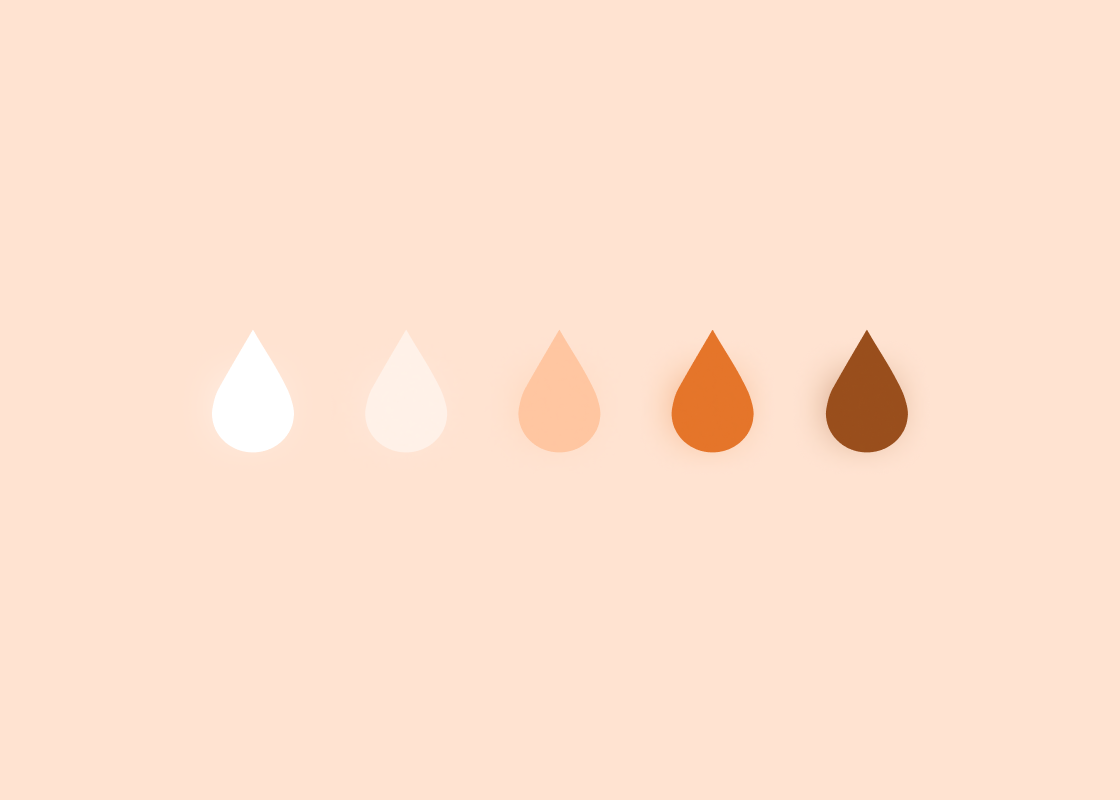You've probably heard that getting pregnant at a younger age is almost always better than having to push out a baby when you're 40.
But perhaps, you may be feeling a little hesitant to start a family in your early 20s. After all, there are countless factors—other than your fertility—to consider when making that commitment. Being emotionally and financially ready may be just as important to you.
Because of this, you may be wondering, "What age are women most fertile, and at what age does a woman stop being fertile?"
As much as we try, there's no escaping the biological clock, and we can't stop it from ticking. But knowing when you're more likely to conceive and when these odds are dramatically lowered could be helpful in family planning.
In this article, we'll explore the average fertile age for women, how your fertility changes as your age advances, and how age may impact your pregnancy and IVF success.
Let's dive into it!
What Is The Fertile Age?
Technically speaking, you can get pregnant from puberty (when you get your first period) until you reach menopause.
Menopause is the event that indicates the end of your reproductive period resulting from the natural and permanent failure of your ovaries [1]. Once your ovaries reach that stage, they will no longer release eggs for fertilisation, so pregnancy cannot happen.
You are considered to have reached menopause when you do not get your period for 12 months in a row [1]. You may still be able to get pregnant in the time leading up to this, which is known as the peri-menopause stage.
And yes, even at that age, your chances are not zero! In fact, studies have shown that it is possible—though very rare—to conceive in your early to mid-50s [2].
But just because it is possible to conceive, this doesn't mean you will 100% be able to when you're older in age, even with assisted reproductive technology like IVF. There will be a certain window in your life when your odds of a successful and healthy pregnancy are much greater.
So, what's the average fertile age for women, then?
Well, research over the years has generally shown that your fertility only declines minimally until you reach early to mid 30’s [3]. Due to this reason, delayed child-bearing can be defined as a pregnancy that occurs after the age of 35 [4].
We'll explore the research and science behind this further in the next section.
How Does Your Fertility Change Over Time?
In general, your fertility will decrease over time.
Here's a summary of the findings of research studying the association between fertility and age in women.
- Research has shown that women aged between 19-26 have the highest chances of pregnancy during their fertile window [5].
- The monthly probability of obtaining pregnancy (fecundability) for women between the ages of 20-30 is about 25%. This decreases to about 10% above the age of 35 [6].
- The probability of pregnancy is almost double for women aged 19-26 compared to women aged 35-39 years [5].
So in general, your peak fertility age lands during your late teens to mid-twenties. Your fertility slowly decreases until about the age of 32-35, and that's when this decline starts to pick up speed. Beyond 35, you can expect a sharp decrease in your fertility until you reach menopause [4, 5, 6].
Why Does Your Fertility Decline With Age?
Well, the function of just about anything waxes and wanes with age—unfortunately. Ageing goes beyond the wrinkles of your skin. Your fertility declines as you advance in age, and this is attributed to various reasons.
The number of immature egg follicles (primordial follicles) you have in your body will reduce. You're born with around 1-2 million of these, but that's the most you'll ever have after you're born [7]. This decreases to about 500,000 when you first get your menses. At 37, you'll have around 25,000, but this drops to just 1000 close to menopause [6].
A group of primordial follicles will begin to develop during each menstrual cycle, but only the healthiest will fully develop to release a mature egg for fertilisation. Because your reserve dwindles over time, there will be fewer opportunities for healthier eggs to mature as you grow older [6].
Plus, the quality of your eggs naturally declines as the clock ticks. Top that off with a general decrease in the frequency of sexual intercourse with age, and you'll have a triple whammy. Due to all these reasons, it's more challenging to get pregnant as you age [3].
Of course, this doesn't mean you cannot have children past 35. It is still possible to get pregnant and carry a healthy baby to full term even in your late 30s or 40s [3].
If you're interested, there are pregnancy calculators that can help you gauge how fertile you are using a combination of factors, including age.
Ageing And Pregnancy Complications
So, what's the best age to get pregnant?
Well, other than your fertility, the risk of pregnancy complications is also affected by age. In fact, childbirth at ages less than 19 or above 35 is associated with an increased risk of various pregnancy complications [8].
Because of this, the best age to get pregnant would generally be between 19 to 35—which is when your fertility hasn't begun drastically declining yet, and you're at a lower risk of pregnancy complications.
At ages above 35, you'll have a higher risk of experiencing the following:
- Preterm delivery [9]
- High blood pressure [9]
- Preeclampsia (a serious high blood pressure condition) [8, 9]
- Gestational diabetes (diabetes during pregnancy) [9, 16]
- Poor growth of your baby [8, 9]
This can be very concerning. But women with complications such as gestational diabetes and preeclampsia can still give birth to a healthy baby, as long as timely and proper medical attention is received.
Ageing and IVF Success
IVF is commonly thought of as one way to increase your chances of getting pregnant at a more advanced age. But research has shown less successful IVF outcomes in women in the higher age group.
One study demonstrated that the clinical pregnancy rates from IVF in women aged 40-44 years were almost four times lower than in women aged less than 30. Hence, women above the age of 40 may face more difficulty getting pregnant with IVF. Additionally, the study found that the rate of miscarriage was doubled in women aged 38 compared to those younger than 30 [7].
Another study ended up with similar findings, where women aged 40 and up had lower chances of pregnancy with IVF [10]. Research has also found an age-related reduction in live birth rates in women in their late 30s undergoing IVF [3, 11].
These research findings indicate that the most optimal age to undergo IVF treatment is before your late 30s. This could be due to the declining egg reserve (which we talked about earlier) and the reduced quality of your eggs as you grow older, leading to lower implantation and fertilisation rates. Past a certain point, IVF treatment cannot overcome the age-related decline in fertility. [7, 10, 11].
It's completely understandable to have some worries or doubts about the factors that may affect your IVF treatment success. In any case, it's best to seek the advice of your healthcare provider.
How About The Fertility of Men And Their Age?
Just like women, the fertility of men likely declines with age as well. However, the effect of male ageing on fertility is much more controversial compared to that of women, and research has presented conflicting findings [12].
Some research shows that the chances of conceiving within 12 months are about 30% less in men above 40 compared to those younger than 30 [13].
This decline in fertility with age could be due to various reasons, including the following:
- Decrease in the concentration, motility, and quality of sperm
- Increasing rate of DNA fragmentation in sperm
- Decline in testosterone production that could lead to reduced sexual desire
- Increased risk of erectile dysfunction and difficulty achieving ejaculation [13, 14]
The effect of the male partner's age on IVF success is still being debated, and research findings are conflicting [14, 17, 18]. Hence, more studies are needed to determine if paternal age significantly impacts the success rate of IVF treatment.
Even though the topic of male infertility receives much less attention, you may wish to address any concerns you have with a health professional you trust.
How Can You Enhance Your Fertility?
Your age can indeed affect your fertility. But as much as we want to, it's impossible to stop the clock and halt ageing.
The good news is that there are some practical lifestyle modifications you can make to enhance your fertility in the long run.
Some lifestyle changes that may boost your fertility include the following:
- Maintain a healthy and balanced diet. Consuming sufficient fruits and vegetables is correlated with better semen quality. Meanwhile, opting for vegetable proteins over animal proteins and monounsaturated fats (e.g. avocado, nuts, olive oil) over trans fats as well as consuming multivitamins may help lower female infertility rate.
- Keep within a healthy weight. Both obesity and being underweight can affect sperm quality, menstruation, fertility, and the health of your baby.
- Stay active. Men who exercise for an hour at least three times a week could have better sperm quality than those who don't. Physical activity may also improve fertility in women who have obesity.
- Manage stress. We all have our bad days, but too much stress can be detrimental to your fertility. Seeking counselling and therapy or being part of a support group may be beneficial if you're experiencing stress, anxiety, or symptoms of depression. Understandably, reaching out for help feels daunting, but doing so can help you improve your fertility and maintain a healthy pregnancy if you've conceived.
- Cease smoking. Smoking can significantly impair fertility in both men and women. It's never easy to quit, but your health provider can recommend helpful lifestyle habits and treatment to set you in the right direction [15].
Final Takeaway: Your Fertile Age
Yes, your fertility declines with age, and knowing how your fertility changes over different stages of your life may help you make better-informed family planning decisions. But this doesn't mean you have to pressure yourself to start a family soon if you're not ready.
The journey of infertility is understandably very challenging, and you may have concerns about whether or not you will be able to start a family—be it now or in the future. That's perfectly okay. Discussing your problems, worries, and options with a trusted healthcare professional may help you more confidently navigate them.
If you're interested in tracking and better understanding your menstrual cycle and fertile period, the inne minilab is designed exactly for that. This device gives you comprehensive and digestible information about your menstrual cycle and hormonal curve and helps you pinpoint your fertile window each month.
Learning more about your fertility and well-being can start with having a better understanding of your unique cycle.
References
1. Mirsafi R, Attarha M. Postmenopausal Pregnancy: A Case Report. Iran J Nurs Midwifery Res. 2020;25(3):260-262. Published 2020 Apr 18. doi:10.4103/ijnmr.IJNMR_94_19
2. Chibber R. Child-bearing beyond age 50: pregnancy outcome in 59 cases "a concern?". Arch Gynecol Obstet. 2005;271(3):189-194. doi:10.1007/s00404-003-0577-7
3. Baird DT, Collins J, Egozcue J, et al. Fertility and ageing. Hum Reprod Update. 2005;11(3):261-276. doi:10.1093/humupd/dmi006
4. Deatsman S, Vasilopoulos T, Rhoton-Vlasak A. Age and Fertility: A Study on Patient Awareness. JBRA Assist Reprod. 2016;20(3):99-106. Published 2016 Aug 1. doi:10.5935/1518-0557.20160024
5. Dunson DB, Colombo B, Baird DD. Changes with age in the level and duration of fertility in the menstrual cycle. Hum Reprod. 2002;17(5):1399-1403. doi:10.1093/humrep/17.5.1399
6. George K, Kamath MS. Fertility and age. J Hum Reprod Sci. 2010;3(3):121-123. doi:10.4103/0974-1208.74152
7. Tan TY, Lau SK, Loh SF, Tan HH. Female ageing and reproductive outcome in assisted reproduction cycles. Singapore Med J. 2014;55(6):305-309. doi:10.11622/smedj.2014081
8. Cavazos-Rehg PA, Krauss MJ, Spitznagel EL, et al. Maternal age and risk of labor and delivery complications. Matern Child Health J. 2015;19(6):1202-1211. doi:10.1007/s10995-014-1624-7
9. Rendtorff R, Hinkson L, Kiver V, Dröge LA, Henrich W. Pregnancies in Women Aged 45 Years and Older - a 10-Year Retrospective Analysis in Berlin. Geburtshilfe Frauenheilkd. 2017;77(3):268-275. doi:10.1055/s-0043-100105
10. Stolwijk AM, Zielhuis GA, Sauer MV, Hamilton CJ, Paulson RJ. The impact of the woman's age on the success of standard and donor in vitro fertilization. Fertil Steril. 1997;67(4):702-710. doi:10.1016/s0015-0282(97)81370-2
11. Lin J, Huang J, Zhu Q, Kuang Y, Cai R, Wang Y. Effect of Maternal Age on Pregnancy or Neonatal Outcomes Among 4,958 Infertile Women Using a Freeze-All Strategy. Front Med (Lausanne). 2020;6:316. Published 2020 Jan 10. doi:10.3389/fmed.2019.00316
12. Sharma R, Agarwal A, Rohra VK, Assidi M, Abu-Elmagd M, Turki RF. Effects of increased paternal age on sperm quality, reproductive outcome and associated epigenetic risks to offspring. Reprod Biol Endocrinol. 2015;13:35. Published 2015 Apr 19. doi:10.1186/s12958-015-0028-x
13. Harris ID, Fronczak C, Roth L, Meacham RB. Fertility and the aging male. Rev Urol. 2011;13(4):e184-e190.
14. Collodel G, Ferretti F, Masini M, Gualtieri G, Moretti E. Influence of age on sperm characteristics evaluated by light and electron microscopies. Sci Rep. 2021;11(1):4989. Published 2021 Mar 2. doi:10.1038/s41598-021-84051-w
15. Sharma R, Biedenharn KR, Fedor JM, Agarwal A. Lifestyle factors and reproductive health: taking control of your fertility. Reprod Biol Endocrinol. 2013;11:66. Published 2013 Jul 16. doi:10.1186/1477-7827-11-66
16. Lean SC, Derricott H, Jones RL, Heazell AEP. Advanced maternal age and adverse pregnancy outcomes: A systematic review and meta-analysis. PLoS One. 2017;12(10):e0186287. Published 2017 Oct 17. doi:10.1371/journal.pone.0186287
17. Dain L, Auslander R, Dirnfeld M. The effect of paternal age on assisted reproduction outcome. Fertil Steril. 2011;95(1):1-8. doi:10.1016/j.fertnstert.2010.08.029
18. Frattarelli JL, Miller KA, Miller BT, Elkind-Hirsch K, Scott RT Jr. Male age negatively impacts embryo development and reproductive outcome in donor oocyte assisted reproductive technology cycles. Fertil Steril. 2008;90(1):97-103. doi:10.1016/j.fertnstert.2007.06.009



.jpg)





